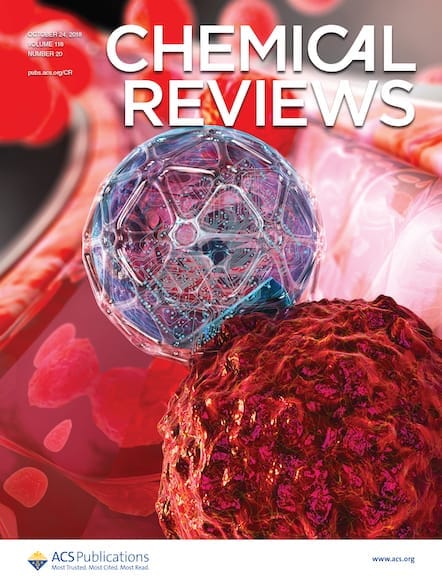Chemical Reviews is proud to announce the appointment of its first Early Career Advisory Board. Review articles are read and appreciated by chemists at all levels, but particularly those in the early stages of their careers. Whether they are setting up a new lab, exploring new areas of research, or training their first graduate students, […]

Chemical Reviews is proud to announce the appointment of its first Early Career Advisory Board. Review articles are read and appreciated by chemists at all levels, but particularly those in the early stages of their careers. Whether they are setting up a new lab, exploring new areas of research, or training their first graduate students, the reviews in Chemical Reviews are an invaluable resource.
To ensure that Chemical Reviews is meeting the needs of researchers at this critical career stage, the journal appointed this group of outstanding researchers who have agreed to advise Chemical Reviews on our practices, content, and accessibility. This group reflects the diversity of the next generation of chemists, and we are thrilled to have their input into Chemical Reviews.
Ho Yu Au-Yeung
Tell us about yourself.
I am currently an Assistant Professor in the Department of Chemistry at the University of Hong Kong. I was born and raised in Hong Kong and obtained my BSc and MPhil degree from the Chinese University of Hong Kong. I did my Ph.D. at The University of Cambridge. Before coming back, I did my postdoc at University of California, Berkeley.
Describe your current research (or areas of interest).
We are working on supramolecular chemistry, focusing on the chemistry of the mechanical bond. We are developing new synthetic strategies to efficiently synthesize complex [n]catenanes and to study their properties and explore their new functions. We are also interested in the recognition and detection of biologically important species.
What do you hope to bring to Chemical Reviews and the Early Career Board?
I am hoping to bring views as a young researcher to Chemical Review, e.g., what do we look for when reading a review paper.
What are the major challenges facing early career researchers?
I think one challenge that early career researchers may face is that we are now in a fast-changing world with a lot of opportunities as well as competitions. We will need to stay confident while we are identifying our role as a researcher and tackling the different challenging research problems.
[/expand] Dibyendu Das
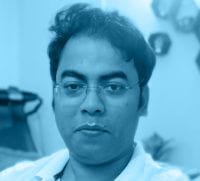
Please tell us a little about yourself.
I received my Ph.D. degree in Supramolecular Chemistry from Indian Association for the Cultivation of Science (IACS) Kolkata, India, in 2010 and did my postdoctoral training at Emory University, USA. At present, I am working at the Department of Chemical Sciences of Indian Institute of Science Education and Research (IISER) Kolkata. Outside of the lab, I like to spend time on cooking Indian cuisines and making fusion food. Swimming and cross country drives also excite me a lot.
Describe your current research (or areas of interest).
In our lab, we are observing an exciting structural and functional overlap of synthetic organic chemistry with nanomaterials and biomolecules. We are excited about the field of systems chemistry with emphasis on the following two directions:
We are interested in short peptide-based amyloid phases that can access paracrystalline nanostructures and demonstrate catalytic traits of advanced enzymes, from covalent catalysis to substrate channeling. We are also interested in the study of condensates of short peptides and nucleic acid fragments.
We are also interested in mimicking the energetically uphill processes of self-assembly seen in nature via the design of synthetic systems. We are excited to develop self-assembled autonomous materials that are driven by thermodynamically activated molecules and show temporal control of functional properties.
What do you hope to bring to Chemical Reviews and the Early Career Board?
I hope to reach out to more people and communicate via the platform of Chemical Reviews to convey the importance of basic science research for innovations and touching everyday lives. I hope to discuss and collaborate within the Early Career Advisory Board to suggest Thematic issues on specific topics to highlight the timely significance of these subjects to the broader research community. Finally, I hope to interact with the editors and contribute to the remarkable and continued growth of Chemical Reviews.
What are the major challenges facing early career researchers?
There are different challenges faced by early-career researchers. Among the biggest challenges is to build a reputation in a particular field of research and make the problem visible to the scientific community. Further, securing funds for research, especially in basic science, is a challenge in the current times. The public perception of research not contributing enough to society needs to be changed via communicating the merits and importance of basic science that is critical for future innovation.
Laura Dassama
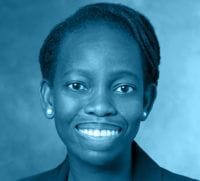
Please tell us a little about yourself.
I am a bioinorganic chemist and structural biologist who uses tools of chemistry and physics to provide molecular insights into complex biological processes. I am currently an Assistant Professor in the Department of Chemistry at Stanford University and an Institute Scholar at Stanford ChEM-H Institute.
Describe your current research (or areas of interest).
My group performs research at the interface of chemistry and biology, relying on tools of chemistry to probe and explain biological phenomena. Ongoing directions include investigating the role of sterol lipids in bacteria, characterizing divergent multidrug transporters implicated in bacterial multidrug resistance, elucidating the biosynthesis of biologically-active peptidic natural products to rationally engineer better forms, and targeted degradation of factors relevant to beta-hemoglobinopathies, including sickle cell disease.
What do you hope to bring to Chemical Reviews and the Early Career Board?
I hope that my inclusion in this group will bring additional diversity to the content of Chemical Reviews, both in terms of the scope of the science and in the content relevant to chemists in the early stages of their careers.
What are the major challenges facing early career researchers?
While early-career researchers today face a plethora of challenges, the limited amount of resources (research funding in particular) dictates that the bar for success is much higher now than it was for our predecessors. There is also the realization that in addition to mentoring, which many institutions now have in place, access to advocates can significantly impact the success of early-stage investigators.
Klaus Eyer
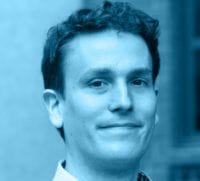
Please tell us a little about yourself.
In 2005, I started my studies in pharmaceutical sciences at the ETH Zürich and graduated in this discipline in 2010. In 2014, I received my doctoral degree from the Institute of Organic Chemistry at ETH Zürich, where I worked on the development of novel microfluidic systems to measure intracellular proteins and metabolites within individual cells, and studied membrane permeation as well as neutralizing antibodies. I started my current position as a non-tenure track assistant professor at the Institute of Pharmaceutical Sciences in August 2019. In my spare time, skiing, hiking, floorball, running, and cooking fill my days.
Describe your current research (or areas of interest).
Individual cells are the functional units within many complex and dynamic cellular systems and processes, such as immune responses, and they can be present in varying frequencies and degrees of activity. In this regard, my research group focuses on developing and applying technologies and analytical strategies that allow us to measure, describe and exploit functionality within complex cellular systems, resolved down to the individual, primary cell. Our work involves the development, integration, and characterization of novel bioassays that allow us to quantify functionalities of interest with high resolution in biophysical and biochemical aspects. While doing ex vivo measurements, we are aiming to understand the cellular functionalities of the extracted cells in vivo, and within the context of our applied disturbance – vaccination, infection, or malignant transformation. In our vision, functionality eventually defines the outcome and usefulness of the immune response, and a deep understanding of these functionalities is important to understand vaccination or immune-related pathologies, to characterize the effect of immunomodulatory drugs, or to precisely diagnose various pathologies.
What do you hope to bring to Chemical Reviews and the Early Career Board?
The career path I have chosen so far was guided by my passion for applied and interdisciplinary research. I am by training a pharmacist, and throughout my scientific career, I gained knowledge in analytical chemistry, bioassay development, microfluidic engineering, and immunology to add to my interdisciplinary education. I am convinced that applied interdisciplinary approaches can generate successful scientific working environments, and set up projects that not only advance scientific knowledge but also allow for the successful transfer towards real-world applications. A critical skill I learned through my career path lies in the optimal communication between different fields of expertise to advance projects. While I am still learning every day, I see this communication as an important part of my daily life as a researcher, also with the public.
What are the major challenges facing early career researchers?
As an interdisciplinary researcher, one major challenge is recognition within the scientific fields. Since science itself seems still organized in disciplines, together with their own meetings, journals, and conferences, working in between fields complicates recognition. Here, initiatives such as the early career boards are of great importance and warmly welcomed. In my opinion, another major challenge for any early career researcher lies in the successful navigation of various counsel and opinions of mentors and colleagues. Ultimately, the early career researcher will need to find and define his or her own path, guided but not limited by this counseling.
Lars Goerigk

Please tell us a little about yourself.
I am a Senior Lecturer at the School of Chemistry at The University of Melbourne, Australia. In 2011, I obtained my Ph.D. and then relocated to The University of Sydney before joining my present institution in 2014.
Describe your current research (or areas of interest).
My area of expertise is theoretical and computational quantum chemistry with a focus on Density Functional Theory (DFT) for ground and excited states. Besides the assessment and development of DFT methods, one of my passions is to close the communication gap between developers and users by addressing prevailing misconceptions in the field and informing of better alternatives. I am also regularly involved in collaborative projects in the areas of organic, inorganic, and materials chemistry.
What do you hope to bring to Chemical Reviews and the Early Career Board?
Supporting early-career academics and being a voice for them has always been important to me. For instance, from early 2018 until the end of 2019, I have been the founding chair of my faculty’s Early Career Academic Network. I also see myself in the phase of transitioning from the early to the mid-career stage, having undergone the typical stages of fixed-term contracts, obtaining a tenure-track position, and achieving tenure together with promotion. I, therefore, hope to bring my various insights gathered throughout my previous and current roles to the Early Career Board.
What are the major challenges facing early career researchers?
The major challenges are job and funding insecurity. The first is due to many early career researchers being employed in fixed-term positions and the relatively small number of continuing academic positions usually available. However, even when finding a continuing or tenure-track position, a major challenge is to secure funding, particularly for independent projects where early career academics have to compete against established, more senior researchers. While many funding agencies have established a framework that considers one’s research opportunities, there is always room for improvement, particularly in countries where public financial support of funding bodies may have been cut and not grown substantially over the past years.
Chuan He

Please tell us a little about yourself.
I am an Associate Professor in the Department of Chemistry and Shenzhen Grubbs Institute at Southern University of Science and Technology, Shenzhen, China. I received my Bachelor’s degree in Chemistry from Wuhan University, China, in 2008. Then, I began my graduate study at the same university, where my research focused on copper- and silver-catalyzed coupling reactions. After completing my Ph.D. in 2013, I started as a postdoctoral researcher and Marie Curie Research Fellow at the University of Cambridge, UK, where my research focused on palladium-catalyzed C–H functionalization of aliphatic amines. In 2018, I joined Southern University of Science and Technology to start my independent research career.
Describe your current research (or areas of interest).
- Development of new asymmetric catalysis for the construction of heteroatom stereocenters;
- Development of new carbon-carbon and carbon-heteroatom bond forming reactions by electrocatalysis;
- Development of new methodologies for the synthesis of chiral organic materials.
What do you hope to bring to Chemical Reviews and the Early Career Board?
As part of a young generation of organic chemists, I think it would be great to build connections with editors, reviewers, researchers, and readers across fields and generations. The insights from the early career board members will surely bring in identifying emerging areas of interest to the readers, and help with organizing perspectives, reviews, or special issues for the journal.
What are the major challenges facing early career researchers?
- Adapting the transition from being a Ph.D. or a postdoc to being a team leader, which means there are many new responsibilities for early career researchers, like how to manage a laboratory, get funding, teach students, establish a nice lab culture and so on.
- Choosing a research topic with concept advance and then finding/solving the challenges in the area.
- Balancing professional life and personal life.
Fiona Li
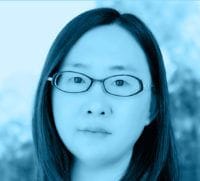
Please tell us a little about yourself.
I am an assistant professor at Thayer School of Engineering at Dartmouth College. I graduated with bachelor’s and master’s degrees in chemistry from Nankai University (Tianjin, P.R. China), and a Ph.D. in biomedical engineering from Washington University in St. Louis. I then worked as a Postdoctoral Associate in the Department of Materials Science & Engineering at Stanford University. In my spare time, I enjoy painting, hiking, and watching basketball games.
Describe your current research (or areas of interest).
The research in my group at Dartmouth College primarily focuses on rational design, synthesis and engineering of novel functional materials with finely tailored compositions and architectures to tackle critical problems in diverse energy-related applications, especially in cost-effective and high-energy battery systems. I aim to build a bridge and advance the understanding between fundamental structure-property relationships and practical device performances.
What do you hope to bring to Chemical Reviews and the Early Career Board?
I hope I can bring innovative ideas that help to engage young scientists in their early careers working on different aspects of chemistry. I hope to use my expertise in chemistry and materials science and engineering to help the editors to identify new thematic issues of emerging research from both science and engineering perspectives. I also hope to collaborate with other early career board members to help identify and highlight exciting and transformative research findings to the community.
What are the major challenges facing early career researchers?
Speaking from my own experience, I feel early career researchers may face the following major changes:
- Achieving a balance between curiosity-driven research and problem-solving research
- Time management
- Sustaining writing productivity
- Coping with multiple roles simultaneously: teacher, research mentor, fundraiser, writer/reviewer, etc.
- The balance between work and life
- Lacking access to resources and facilities
Elisa Orth
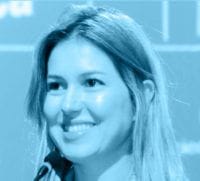
Please tell us a little about yourself.
I received my undergraduate (2005), master’s (2008), and doctorate (2011) degree in Chemistry from the Federal University of Santa Catarina (Brazil) in the area of catalysis and organophosphates. My postdoctorate was at the Federal University of Paraná (2011) in the area of nanomaterials.
Since 2012, I have been an Associate Professor at the Department of Chemistry at the Federal University of Paraná, where I lead the research group: Group and Catalysis and Kinetics.
Describe your current research (or areas of interest).
My main research interests have been: (i) degradation and monitoring of pesticides and chemical weapon simulants; (ii) organophosphate chemistry and chemical security; (iii) development of sustainable nanocatalysts, artificial enzymes, biocatalysts and catalysts from waste, (iv) functionalization of nanomaterials; (v) hydrogen generation.
What do you hope to bring to Chemical Reviews and the Early Career Board?
I hope to bring my experience in promoting early career researchers by stimulating them to engage with Chemical Reviews activities and other actions that will help in consolidating their careers. In this regard, gender parity issues are also important to address. Training activities involving, for example, seminars with editors that help researchers when elaborating reviews. I think it will be a great experience for me to learn and give feedback on how early career researchers can be involved and stimulated. Moreover, I think it’s important that the Latin American community is involved in such prestigious positions, to give insights on our reality and help insert ourselves.
What are the major challenges facing early career researchers?
Mostly, our major challenge is sometimes the lack of a mentor that helps guide us through the important steps in researching, involving submitting articles, getting financial support, supervising students, academic and administrative activities as well as networking. Some of us are lucky to have had supervisors during the doctorate that help train us, but we still face difficulties. Surely training courses would be very important for early career researchers. Also, we have difficulty in competing with well-established researchers, for example, in financing projects or being selected for oral presentations at conferences.
Michelle Personick
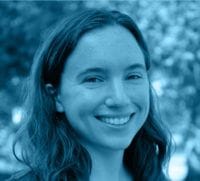
Please tell us a little about yourself.
I am an Assistant Professor of Chemistry at Wesleyan University in Connecticut. I got started as a chemist as an undergraduate at Middlebury College in Vermont, studying platinum and ruthenium anticancer model compounds. I then went on to complete my Ph.D. at Northwestern University, where I worked on developing principles for the synthesis of polyhedral gold and silver nanoparticles. Before starting my independent career at Wesleyan, I was a postdoctoral researcher at Harvard University as part of the Integrated Mesoscale Architectures for Sustainable Catalysis (IMASC) Energy Frontier Research Center, studying nanoporous metal alloy catalysts.
Outside of the lab, I am a competitive masters rower.
Describe your current research (or areas of interest).
Current research in my group focuses on the use of precisely defined bimetallic nanoparticles as nanoscale analogs of macroscopic single-crystal model surfaces to enable fundamental studies of catalysis under more complex reaction conditions. Part of our research involves the study of catalytic reactions relevant to the efficient utilization of energy resources under both thermal and photocatalytic (plasmon-assisted) conditions. Generating materials with controlled surface structures and tailored elemental distributions from metals with dissimilar chemical reactivity is critical to the design of active and selective catalysts for difficult chemical transformations, but it is also synthetically challenging. Metals with different catalytic behavior in their elemental states also generally have ionic precursors with different reduction chemistry. To meet this challenge, we are continually developing new tools for the synthesis of precisely defined bimetallic nanomaterials based on broadly generalizable chemical principles.
What are the major challenges facing early career researchers?
As the most interesting and important research questions become increasingly more interdisciplinary, it can be challenging to get up-to-speed and remain informed of advances across the wide range of subfields that are necessary to successfully address a particular research problem.
Collaborations are, of course, critical to success in these situations, but it is also important to have a solid fundamental understanding of the approaches that one’s collaborators are using. Most early-career researchers are highly trained in one or more primary fields from their Ph.D. work and likely at least one more from their postdoctoral work. However, as we branch out from what we have done previously and establish our own independent work, it is often necessary to rapidly train in additional scientific subfields and research approaches. This is also key to the way we work with our own trainees, who likewise need to pick up a breadth of background fundamentals fairly quickly.
Learning to locate, assess, and acquire knowledge from the literature is a central component of training for research students. However, the students in any particular research lab can be at a range of stages concerning their expertise in this skill. For early-career researchers, in particular, there is usually a period where we’re working with a lab composed primarily of newer graduate and undergraduate students. They require significant mentoring and direction in this area.
What do you hope to bring to Chemical Reviews and the Early Career Board?
As someone who uses review articles both as a training tool for researchers in my lab and as a teaching resource in my undergraduate courses, I hope to bring perspectives on some of the audiences for the review articles published in Chemical Reviews who are not field experts or necessarily even graduate research trainees in the field.
One thing I have found to be important in on-boarding new researchers in my lab is to identify sets of review and perspective articles that can serve as a primary introduction to a particular research thrust in my group. I work directly with many undergraduate researchers as well as graduate students and a postdoctoral researcher, and different starting points are required for these different audiences when building foundational knowledge.
Kimberly See
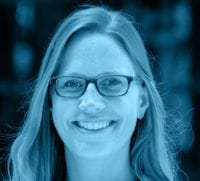
Please tell us a little about yourself.
I am an Assistant Professor of Chemistry at Caltech in the areas of inorganic chemistry and electrochemistry. I am originally from Colorado, and I enjoy activities outside from backpacking, hiking, and camping to soccer and cornhole. I also enjoy listening to live music and eating good food.
Describe your current research (or areas of interest).
I am generally interested in electrochemical systems that couple solid-state chemistry with complex solution-phase chemistry. Specifically, my group works on next-generation battery systems with a focus on multivalent and multielectron chemistry. We are interested in all aspects of the cell from the anode, cathode, and electrolyte to the interfaces between. We are now starting to branch out into the areas of organic electrosynthesis and electrocatalysis.
What do you hope to bring to Chemical Reviews and the Early Career Board?
I hope to bring a perspective that has been informed by my experiences to the Early Career Board while learning from the perspectives of others. I am the first in my family to receive a bachelor of sciences degree and the first to receive a Ph.D. I am lucky to have had research experiences domestic and abroad in various institutions across academia, industry, and national labs. I hope to emphasize the necessity of interdisciplinary and collaborative research in addressing the problems of our time. I’m very interested and committed to energy issues and hope to bring perspective on the significant role that many types of chemistries play in tackling them. I am also interested in early career topics, including diversity in faculty and graduate student populations, how the COVID-19 pandemic is affecting early career researchers, their group members, and families. I am eager to learn from the other members of the Early Career Board and look forward to working with them.
What are the major challenges facing early career researchers?
Every early career researcher faces unique major challenges as our situations are all different, both academically and personally. One thing we can all come together on now, though, is the impact of the COVID-19 pandemic on our careers, research, and general well being. Other topics I am particularly interested in include: methods to support graduate student and postdoc mental health while also supporting our own, achieving diversity in various populations of chemists, and pursuing groundbreaking research while simultaneously promoting the careers, wellbeing, and happiness of students and postdocs.
